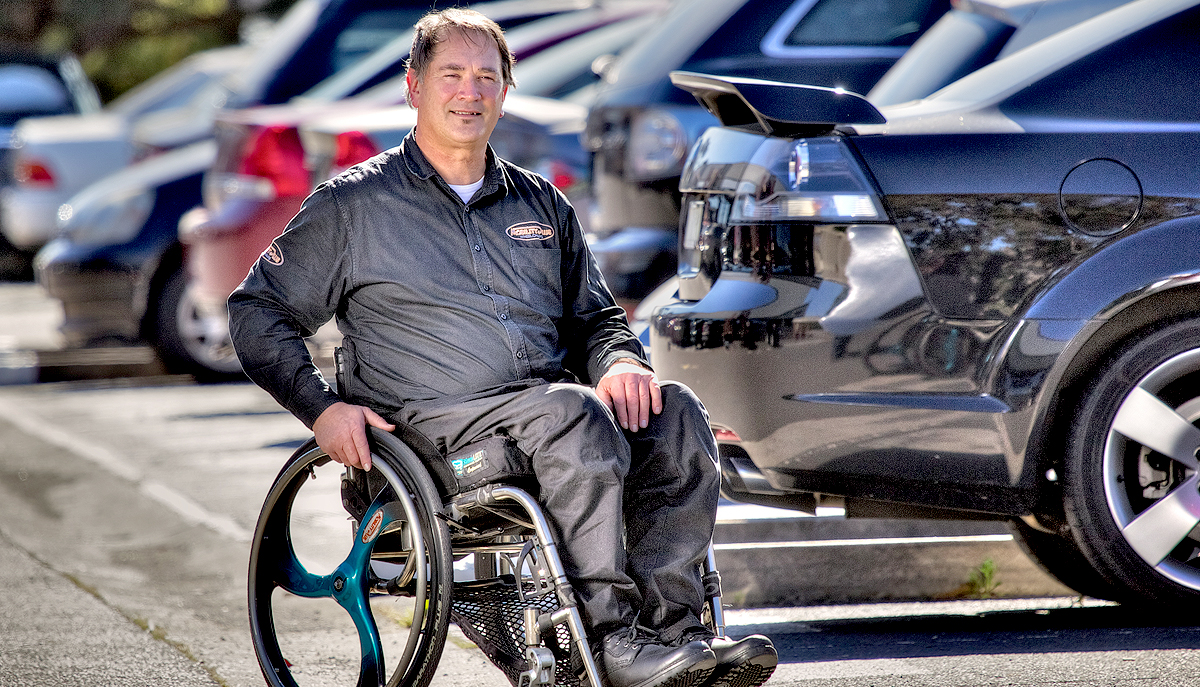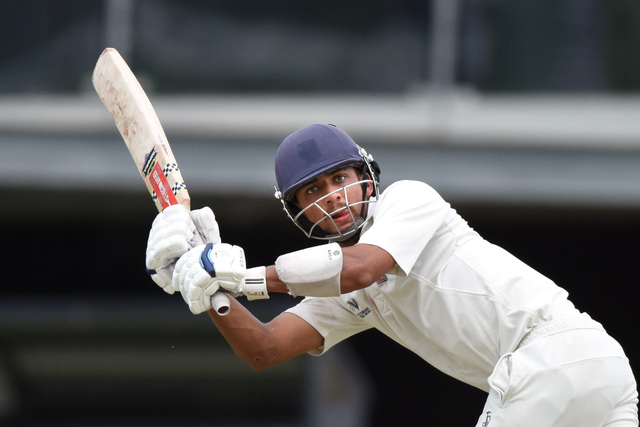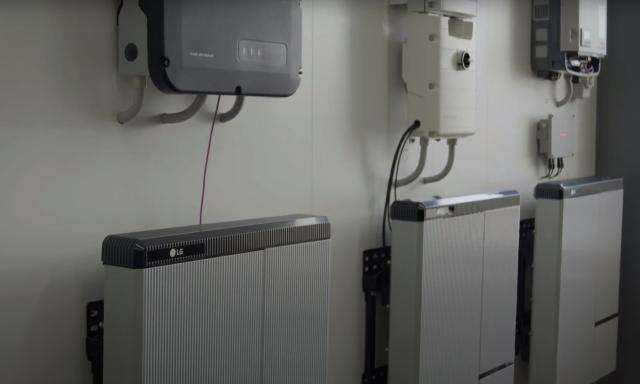By CHAD VAN ESTROP
It’s inter-connected oblivion. More and more people are being caught using their mobile phones or texting while driving. It costs them a $282 fine. Sometimes it costs them — and others — their lives.
And a few of that last group come to him because the person who caused the crash that crippled them was talking on a mobile phone or texting at the time.
Mr Lee can put himself in their place. Ten years ago he was in a line of slow-moving traffic on a curve on Templestowe Road, Bulleen. A four-wheel-drive coming in the other direction failed to take the curve and ploughed into him. Its driver wasn’t looking, too busy chatting on his phone. He turned Mr Lee into a paraplegic.
So he can honestly tell those clients he knows exactly how they feel. But recently a man came shopping for a wheelchair and left Mr Lee lost for words. He admitted that he had been driving while using his phone, oblivious and distracted, and it cost him the use of his legs.
‘‘He’s the only one I ever had who admitted to that,’’ says Mr Lee. ‘‘And you have to bite your tongue really. You might pass a comment like ‘Well, that was a bit foolish, wasn’t it’ — huge understatement. But really, what can you say?’’
Mr Lee is not usually so backward in coming forward. When he pulls up beside other drivers and sees them chatting on their mobiles — or, worse, texting — he winds down his window and gives them a spray. If they don’t get the message he points to his wheelchair on the seat beside him.
Not that it does much good, he admits. Every week more than 1100 drivers are pulled up by police and charged with illegal phone use. During the most-recent police safety blitz — Summer Stay, which ran from mid-November to January 7 — 6077 motorists were charged with mobile phone offences. They face a $282 fine and loss of three demerit points.
And worse. Some face a meeting with someone like Mr Lee, to be measured for a new seat of wheels: ‘‘Unfortunately, it appears mobiles are increasingly going to become a much more common cause of serious injury on our roads,’’ he says. ‘‘And, of course, death.’’
For years, a series of studies has shown the dangers of mixing mobile phones and cars. A British study in 2002 found using a hand-held mobile while driving was more dangerous than driving with a blood-alcohol content of .08. It said reaction time was 30 per cent slower than someone with that level of alcohol and twice as slow as a sober driver.
In 2009, a Virginia Tech study in the US showed that dialling a mobile while driving increased the risk of a crash by almost three times. Simply talking on the phone made the risk of a crash 1.3 times as high.
In heavy vehicles the risks multiply. A truck driver dialling a number is six times more likely to cause a crash as an undistracted driver and reaching for the phone makes it seven times more likely.
Text messaging while driving is far worse. It increases the risk of a crash by 23.2 times, the study found. A simulator study by the Monash University Accident Research Centre found texting drivers spent 400 per cent more driving time with their eyes off the road.
‘‘You cannot read or write an SMS without taking your eyes off the road,’’ Transport Accident Commission road safety manager Samantha Cockfield told The Age in 2011. ‘‘In a 100km/h zone, in four seconds with your eyes off the road you’ve travelled about 200 metres. That’s a long way to travel without actually having anybody in real control of the wheel.’’
Yet today the potential for drivers to be distracted by such devices is at an all-time high, with social media, emails, texts and GPS technology all available on smartphones.
TAC communications adviser Emily Bogue says increased technology and an “it won’t happen to me’’ mentality was fuelling the problem of driver distraction.
The latest available police statistics show that 55,222 drivers — an average of 151 a day — were nabbed for mobile phone offences in 2011.
But much of the problem seems to be attitudinal. A TAC survey in 2010 found 43 per cent of drivers said they believed driving with a hand-held mobile was ‘‘extremely dangerous’’ and another 42 per cent said it was moderately dangerous — yet, despite knowing the dangers, one in five drivers admitted making calls while driving; 34 per cent said they would take a call; 32 per cent said they would read an SMS; and 18 per cent said they would write one.
Inspector David Griffin of Victoria Police highway patrol says drivers have an “automatic reaction’’ to reach for their phones while driving and often disregard the dangers. “There seems to be this preparedness by drivers, particularly younger drivers, to take the risk.
“People don’t seem to understand the risks associated with using a mobile while driving — or if they do understand they are willing to take a chance they might not get caught.”
And even after being caught and fined many don’t seem to learn. Inspector Griffin says he is surprised by how many reoffend. “We detect a lot of people who have had tickets for using their phones in the past.”
In Cardinia, highway patrol officers booked 446 drivers last year for mobile phone
offences. ‘‘People don’t like to be out of communication and as a result they are reluctant to pull over and take calls,’’ says Sergeant Allen Inderwisch of Cardinia police.
‘‘They see every call or text as the most important one they will receive.’’
Sergeant Inderwisch says he regularly sees drivers pulling out of car parks and driveways talking on the phone. ‘‘We can’t understand why people don’t just take that extra few minutes and take the call while stationary.’’
Inspector Griffin says Chief Commissioner Ken Lay has urged all sections of the force to increase the focus on road safety enforcement.
“More than ever before we are seeing police from other areas focus on road policing.
‘‘There is an expectation for other police [outside highway patrol] to deal with road policing matters.’’
This meant phone users were more likely to be detected: ‘‘We have hopefully moved from the possibility to the probability of being caught.”
While it is illegal in all Australian states and territories to use a hand-held phone while driving, many people don’t realise that in Victoria that extends to using the phone while the vehicle is stationary but not parked, such as at traffic lights, says Inspector Griffin.
But he is also cynical about the selfishness and thoughtlessness of many drivers, saying that increasing the $282 fine would not necessarily change driver behaviour.
“There is no evidence to suggest that if the penalty was $1000 people would do anything different.”
While it is difficult to quantify the contribution of mobile phone use to the road toll, Inspector Griffin suggests that anecdotal evidence shows that distracted drivers might be as responsible for as much as 25 per cent of deaths on the road.
Road Trauma Support Services Victoria, a Blackburn-based not for profit organisation, provides support and counselling for bereaved family members, witnesses, drivers and emergency service personnel who attend crashes, and also runs seminars and education for those convicted of traffic offences.
General manager Cameron Sinclair has no doubt that there are people on both sides of that client-base because of mobile phones. ‘‘We don’t take a policing role but are concerned at any type of behaviour, whether it’s speed, alcohol or
distraction through technology that puts passengers, drivers or anyone else at risk,’’ he says.
‘‘I have a five-year-old son and I’d hate to think that he is being put in danger — not to mention myself — by these people.’’
What do you think? Post a comment below.
For all the latest breaking news, stay with this website. Also, follow the Weekly at facebook.com/dandenongjournal or on Twitter @DandyJournal.


















